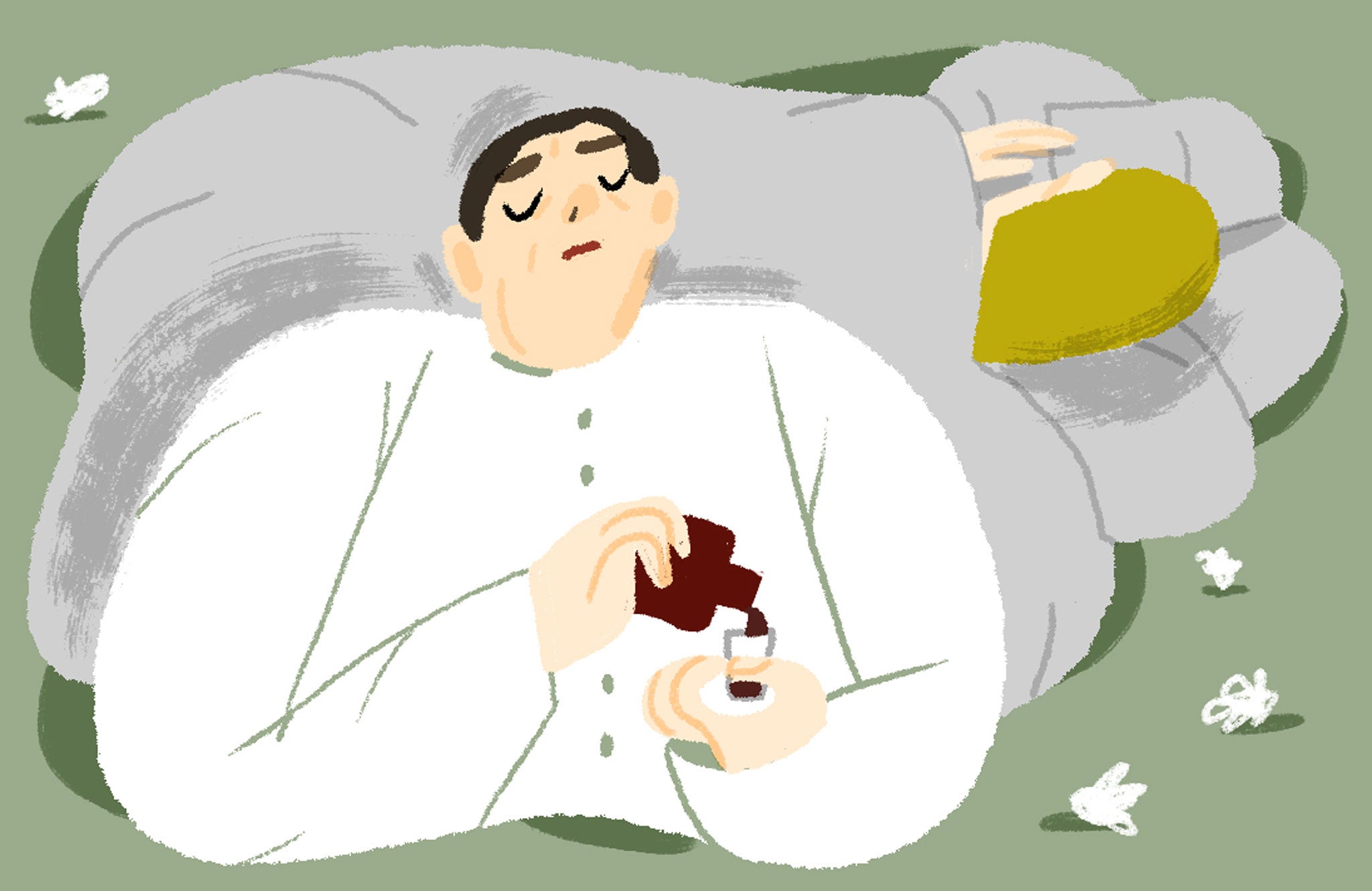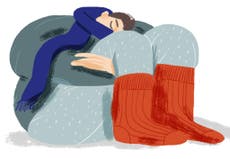Man flu vs woman flu: I favour medicines that reduce your brain function to that of a bowl of fruit
Usually, Marcus Berkmann and his partner are ill sequentially, but not this time. This time they suffered together

We have had the lurgy. I realise this is not exactly an unusual experience at this time of year, especially if you live in a large city where every journey on public transport resounds to a chorus of hacking coughs and passive-aggressive snuffles. In our smallish flat, where two adults and two teenagers somehow coexist, we know we will do well to avoid illness once the germs have arrived and bedded in. With luck the antibodies you acquired last time will fight off a cold's latest mutations, but no one can be protected indefinitely. Eventually you will succumb. Work will cease. Energy will vanish. Lemsip will be bought. James Bond films will be watched on DVD. In illness, as in life, there is a natural order of things.
How each of us responds to illness, though, depends on personality. As a dyed-in-the-wool introvert, I like to be left alone when I'm not well. Beyond the occasional word of sympathy, I want peace and I want silence. In return I shall not go on about how horrible I feel, because I already know myself and I don't care what anyone else thinks. The tall blonde woman is more outgoing, and when she's ill she likes everyone to know about it. She gives me regular updates on how she feels, so regular, in fact, that it's sometimes hard to know when one update finishes and the next one begins. She needs more than tender loving care. She needs an audience.
How do people live together? Most couples have an unacknowledged system of checks and balances in place, and one of ours is that we never get ill at the same time. She gets it first or I get it first, and whoever gets it first defines the atmosphere in the flat over the next few days.
As well as silence I favour brutal non-prescription medicines, the sort that come with little plastic cuplets and don't just knock you out overnight, but reduce your resting heartbeat and brain function to that of a bowl of fruit. In the morning you feel so grateful you're still alive that you willingly choose to ignore all the symptoms you now have that have nothing to do with the cold. The tall blonde woman prefers echinacea, herbal remedies and buckets of chamomile tea. Nor can she have enough pillows. Soon she is adding sofa cushions to her pillow mound, and requisitioning all spare duvets. She thinks bedding is a better treatment for the common cold than my life-shortening medicaments, and who is to say she is not right?
Usually, then, we are ill sequentially, but not this time. This time we suffered together, but not together, if you see what I mean. From my pit of misery on the sofa, I was regularly summoned to her pit of misery in the bedroom to hear how ill she was. I wasn't very sympathetic, I'm afraid. The children, with admirable perspicacity, made themselves scarce. Their parents were fighting a battle of temperaments, with the only weapons they still had the strength to use: sighs, sneezes, coughing fits, long low moans. When you're ill, you become a more extreme, uncompromising version of your normal self. In short, it's a glimpse into the future, and how you're going to be when you're an old git. I might start saving for Dignitas now.
The odd thing is that now we're better, we're being much nicer to each other. We each missed being properly looked after, and we both feel bad we weren't able to look after the other. A lesson learned, to be instantly forgotten next time it happens, I'm sure.






Join our commenting forum
Join thought-provoking conversations, follow other Independent readers and see their replies